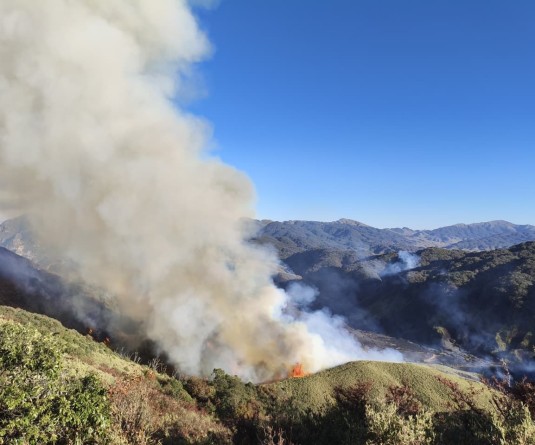
Dimapur, October 12 (MExN): Mokokchung reaches out to the United Nations to intervene in South-East Asia’s longest political conflict, the Indo-Naga political conflict, and impact a permanent settlement. The Concerned Citizens’ Forum of Mokokchung in a letter addressed to the UN Secretary General prayed that the United Nations direct the Government of India to recognize the Nagas’ political rights under the principles of the UN Charter of Indigenous Peoples’ Rights.
“The Indo-Naga political conflict is the longest political problem in Asia needing intervention of the UN and many others. We sincerely hope that a permanent political settlement should be arrived at of the present political talk with Government of India” the CCF letter appealed. “What the Nagas want is to live in their homeland free from domination of India, a Hindu country and Burma, a Bhuddist country. We strongly wish that we should be allowed to be safeguarded by the United Nations Declaration on the Rights of Indigenous Peoples as declared by the UN General Assembly on 12th September 2007.”
CCF prayed that the UN direct the Government of India to recognize the Nagas’ political rights under the principles of the UN Charter of Indigenous Peoples’ Rights.
The Nagas are a distinct ethnic stock of Mongolian race that migrated to the present compact areas from South East Asia and beyond, the forum explained to the Secretary General. The Nagas came through the present Myanmar crossing Irrawady and Chindwin rivers. The Nagas are now settled between India, Myanmar and China occupying an approximate geographical area of 1, 20,000 sq. kms, with a population of over more than 3.5 millions.
“We are neither Aryans, nor Dravidians by racial stock and origin unlike the Indians. We are not Hindus nor Muslims nor Buddhist by religion. As a distinct race, the Nagas remained unconquered and un-administered by any foreign power right from time immemorial but now compelled to live under the domination of India and Myanmar” the forum asserted.
The forum highlighted a gist of the Nagas’ history: British occupational forces invaded the Naga homeland from 1832. In 1866, they carved out a district in the Naga territory and termed it as ‘Naga Hills District’ and placed the same under Assam’s province. “In this way, the British Government divided the Naga population and displaced them in different territories for their own administrative convenience” the forum explained. The British Government on their departure handed over that district to the Government of India without the consent of the Nagas. Further, the Government of India divided the Naga population and territory into different Indian states.
“This gave a turning point to Naga tribal nation, forming into a distinct group of Indigenous People of the world today. The Nagas declared Independence on 14th August 1947, followed by National Plebiscite conducted on May 16, 1951 whereby 99.99% voted in favor of Naga Independence” the forum maintained.
Further, in1953, under the neo-colonial design, the prime ministers of India and Burma Jawaharlal Nehru and Thakin Nu (Unu), further divided the Nagas and shared their territory and population between them putting an “imaginary international boundary” against the wishes of the Nagas. Then, following the 16-Point MoU signed by “certain un-mandated section of people” in July 1960 and subsequent enactment of Nagaland Legislative Act of 1962, a puppet Indian state was strategically installed.
“Out of 62 indigenous Naga tribes, only 16 tribes were included within the puppet state of Nagaland under Indian Union. The rest of the Nagas are forced to live in three other Indian states i.e. Manipur, Arunachal Pradesh and Assam. Majority of the Nagas are in Myanmar side occupying a larger geographical area of the Naga territory, now under military Junta rule” the UN was informed.
Due to installation of Indian state in December 1, 1963 and signing of the Shillong Accord under duress in November 1975, more problems have cropped up dividing the Nagas, it explained. “Throughout the decades, Government of India had been playing divide and rule policy using RAW and state agencies creating different factions amongst the Nagas. Nagaland has been experiencing suppressive iron hand of the Indian Army vis-à-vis a strong Naga resistance struggle against Indian Army and Burmese military Junta.”
The Government of India also imposed various draconian Acts upon the indigenous Naga people such as (i) The Assam Maintenance of Public Order (Autonomous Districts) Act 1953, (ii) Assam Disturbed Area Act 1955, (iii) The Armed Forces (Special Powers Act 28) of 1958, its Amendment of 1972, (iv) Nagaland Security Regulation Act 1962. The Assam Disturbed Area Act of 1955 was re-imposed with effect from March 31 in 1995 in Nagaland. Countless people were massacred by the Indian Armed Forces; Naga villages were grouped, kept them in concentration camps; villages including properties and Naga forests turned to ashes in India-occupied Naga homeland.
The forum informed the UN that “the Naga indigenous people are still under such draconian rules which are a direct violation of human rights; In Burmese occupied Naga homeland also, Nagas are suffering in the hands of Burmese armies ever since 1953, now under military junta rule for more than four decades of confinement in Burma.”
Today, Government of India has recognized the uniqueness of Naga political history and its situation but instead of taking concrete political decision, India is playing delay-tactics to divide the Nagas further. This is the actual state of affairs on the Indo-Naga political conflict, it lamented.
The CCF also expressed immense happiness and gratitude to the UN Secretary General and the UN General Assembly for taking initiative in the right perspective on the rights of the Indigenous People of the world, like the Nagas. It also acknowledged the UN Declaration on the Rights of the Indigenous Peoples of the World on 12th September 2007 in the Report of the Human Rights Council. “We, on our own behalf and the Nagas in general, express our thankfulness to all concerned who stood behind us in recognizing and accepting the legitimate rights of the indigenous peoples of the world” the forum acknowledged. The letter was appended by CCF president Supong Longchar, Secretary B. Namo and executive member Bur Longkumer.




.jpg)

